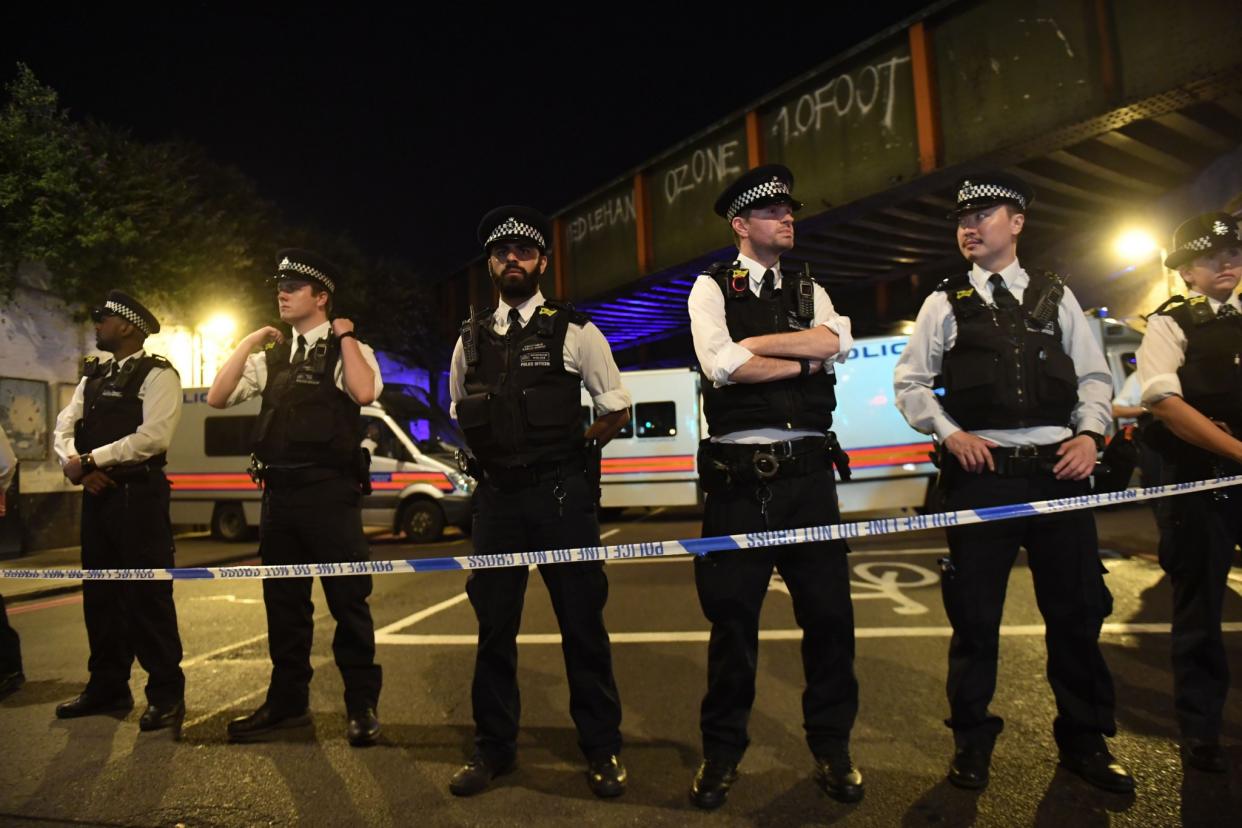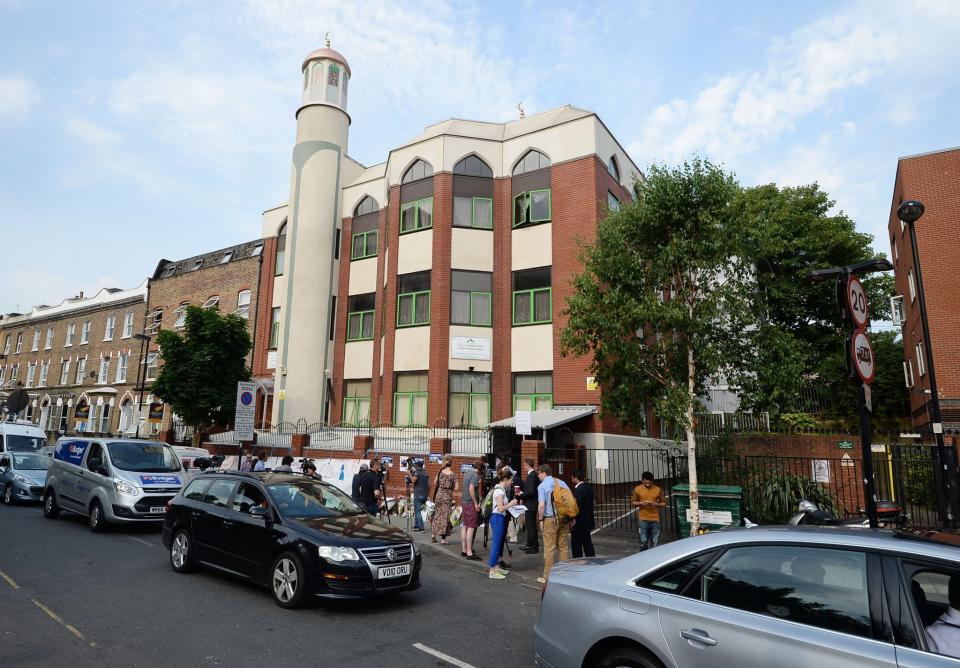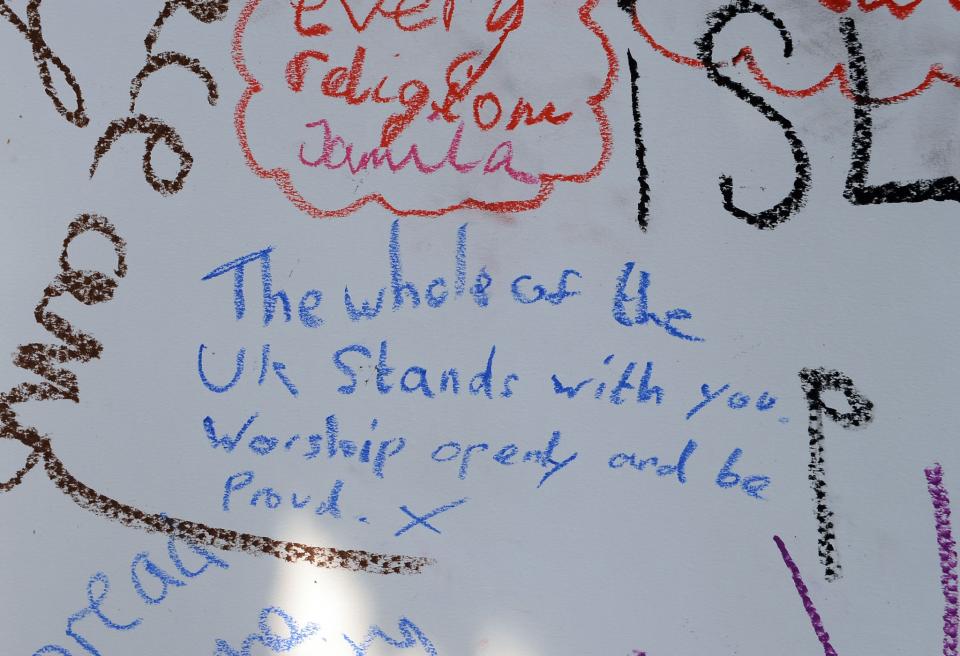This is the number of British people that don't think the Finsbury Park mosque attack was terrorism

Four in 10 people would not describe the attack against Muslims in Finsbury Park as terrorism, a survey has found.
In the immediate aftermath of the attack on Sunday night, the police, authorities and the media in particular were accused predominantly on social media of deliberately downplaying the incident by not referring to it as a terror attack.
The claims garnered momentum in the ensuing hours, with many saying that the response to the attack was different because it was an example of “white terrorism” acting against Muslims.
Accusers claimed that in the Manchester and London Bridge attacks Islamist extremists were immediately identified as terrorists, whereas Darren Osborne, the man suspected of attacking Muslims in Finsbury Park, was not.

Finsbury Park mosque supported this assertion in a statement it released, stating: ‘We are extremely unhappy with the mainstream media not reporting this as a terrorist attack, whereas they are very swift in describing attacks involving individuals professing to be Muslims and acting in the name of Islam.
‘We need fair and balanced reporting from the media; it is completely unacceptable that the media choses to engage in selective reporting.’
Initial reports were that the incident was a road accident before the full horror of what had happened became clear and the attack was categorised by police as ‘terrorism’. These changes were then reflected in media reports.
The poll, carried out by YouGov, found that 59% of those polled were sure that they would describe the attack as terrorism. But 23% said they would not and another 18% didn’t know.
It’s clear the Finsbury Park attack has raised issues about the public perception of terrorism.
So what could lie behind this?

What actually happened
At 00.21 on Monday, police were called to an incident on Seven Sisters road after reports that a van had been driven into a group of pedestrians. Officers in the vicinity responded immediately.
Eight minutes later the Metropolitan Police declared that the attack was being treated as a terrorist incident.
In the aftermath of the attack rumours swirled on Twitter that it took the police two hours to respond to the attack, and that it took them even longer to label it as terrorism. Both accusations turned out to be untrue.
The ongoing investigation is now being carried out by the Counter Terrorism Command.
The media coverage
Media coverage of the events in Finsbury Park also drew heavy criticism.
Headlines about Monday’s attack were placed side by side with those covering the recent terrorism at London Bridge to show that the latter was universally described as terrorism.
However a number of these were taken out of context – most media outlets did begin referring to the attack as terrorism as soon as the police confirmed they were treating it as such.

The Times has faced particular reproach for its headline referring to the suspect as a ‘lone wolf’. Although the article refers to Osborne as a ‘suspected terrorist’, the failure to use the term in the headline has drawn accusations of double standards.
The Times front page covering the #FinsburyParkAttack vs. the London Bridge attack. I'll just leave this here for ya'll. pic.twitter.com/qzhHdxdHR6
— Dr. Rizwaan Sabir (@RizwaanSabir) June 19, 2017
Legal implications
A key difference between the Finsbury Park and London Bridge attacks is that the suspect is alive and under arrest.
Legal reporting restrictions are therefore in place to ensure that his trial is not influenced and that the jury is allowed to make an un-prejudiced decision over his guilt.
Journalists would be breaking the law if they referred to Osborne as a terrorist. They are permitted to call him a suspected terrorist or terror suspect because he has been arrested on suspicion of ‘the commission, preparation or instigation of terrorism including murder and attempted murder’.
While criminal proceedings are underway, publishing statements that create ‘a substantial risk that the course of justice in the proceedings in question will be seriously impeded or prejudiced’ is illegal.
If a jury is found to have been seriously prejudiced, the case in question can be thrown out of court.
So has the media’s treatment of Finsbury Park been fair?
As with the attacks in London Bridge and Manchester, the incident was not referred to as terrorism until the police confirmed it as such. The term was then used going forward.
However the way the story was framed is not without issues. Tell MAMA, an organisation that monitors islamophobic hate crimes, slammed the references to hate preacher Abu Hamza when referring to the Finsbury Park mosque.
Abu Hamza was a preacher at the mosque from 1997-2003, but it has now been transformed into a centre for the local community and won an award two years ago for combatting extremism.
It said: ‘The Finsbury Park mosque has completely changed with hard work. For papers to refer to Abu Hamza when people killed is an utter disgrace.’
JK Rowling raised another issue with a tweet shortly after the attack.
Let's talk about how the #FinsburyPark terrorist was radicalised. pic.twitter.com/Lx1woEaLKL
— J.K. Rowling (@jk_rowling) June 19, 2017
She pointed out that, in the wake of Islamist terrorism, questions are raised immediately in the media about how the perpetrators were radicalised. Similar coverage was lacking following this attack on Monday.
Tallha Abdulrazaq, a researcher at the University of Exeter’s Strategy and Security Institute, echoed this sentiment.
He told Al Jazeera: ‘Had a Muslim committed the same kind of atrocity, we would already have several dozen opinion pieces, commentaries and analyses, and the pundits would be talking about exactly how the attacker was radicalised.
‘That entire discourse is missing from the terrorism we saw at Finsbury Park, or even from the discussion over the terrorist murder of Jo Cox last year.’

 Yahoo News
Yahoo News 

